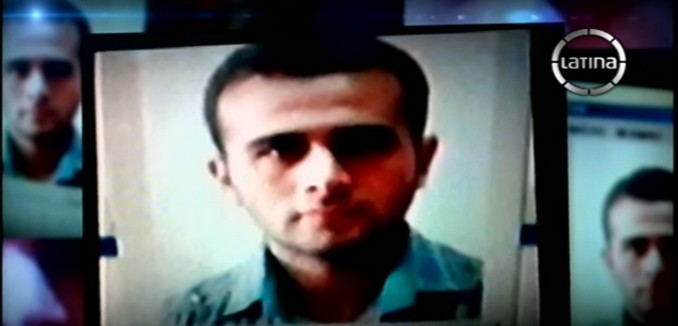A successful conviction in the ongoing trial of a suspected Hezbollah operative in Peru could help authorities “unravel the network of operatives and supporters that Hezbollah has erected throughout the country,” an expert on international terrorism wrote in Foreign Affairs on Wednesday.
Mohammad Hamdar was detained in Lima in the fall of 2014 and tested positive for traces of nitroglycerin, an ingredient commonly used in the production of explosives. Upon his arrest, Hamdar admitted that he was a member of Hezbollah and that he’d been tasked with performing surveillance in the country. Authorities believe he may have been seeking soft targets for a terrorist attack, possibly during the U.N. Climate Change Summit in December 2014. Hamdar was charged with using a fraudulent Sierra Leonean passport and conspiracy to commit terrorism.
Ilan Berman, vice president of the American Foreign Policy Council, wrote that his case “could supply a powerful precedent that could help spur an expansion of national counterterrorism legislation in Peru and provide a model for other countries in the region in their own dealings with Hezbollah, its chief sponsor Iran, and other radical actors.”
Berman observed that Hezbollah and other terrorist groups regard South America as a friendly operating environment due to widespread corruption and the presence of friendly regimes.
Arguably, the most prominent of these is the terrorist powerhouse, Hezbollah, which has maintained an active presence in South America. It has done so since the 1980s, when, with Iran’s assistance, it established a beachhead in the Tri-Border Region where Argentina, Brazil, and Paraguay intersect. Since then, Hezbollah has succeeded in building an extensive network of operations in the Americas—encompassing a wide range of illicit activities and criminal enterprises, from drug trafficking to recruitment to fundraising to militant training.
Over time, Hezbollah has been joined by other terrorist organizations, such as al-Qaeda and even the Islamic State (ISIS), in what has become an increasingly active terrorist milieu. Last month, a study by the Spanish Institute for Strategic Studies, a division of Spain’s Defense Ministry, officially confirmed what regional observers have long noted—namely that “Latin America represents an important region for Islamic radicalism because conditions enable the free, almost undetectable, movement of their members throughout the region.”
In addition, most South American countries have no legal framework for outlawing terrorist activities, and Peru is no exception.
However, if the prosecution is able to obtain a guilty verdict in Hamdar’s case, “it would be tantamount to a criminalization of Hamdar’s membership in Hezbollah—a milestone in a region that currently lacks any such legal precedent,” Berman argued. It would also signal to Hezbollah that “Latin America can no longer be considered cost-free.”
Two years ago this week, Argentinian prosecutor Alberto Nisman was found dead with a gunshot wound to his head just hours before he was set to testify about then-president Cristina Fernandez de Kirchner’s role in conspiring with Iran to cover up its role in the 1994 bombing of the AMIA Jewish center in Buenos Aires.
Over the course of his investigation, Nisman compiled a 500-page indictment detailing Iran’s extensive terrorist network in Argentina and South America.
In December, a new Argentinian prosecutor took over Nisman’s case, which has been dormant since his death. This means, according to Toby Dershowitz, vice president for government relations and strategy at the Foundation for Defense of Democracies, that despite clear obstacles going forward, “those who engaged in an effort to cover up the role of the Iranian perpetrators of the AMIA bombing will hopefully no longer be able to hide from scrutiny.”
The news from South America regarding Iran’s terror network isn’t all good. Recently, embattled Venezuelan President Nicholas Maduro appointed Tareck El Aissami to be his vice president. Joseph Humire, the founder of the Center for a Secure Free Society think tank, testified before the House Foreign Affairs Committee in 2015 that El Aissami “developed a sophisticated, multi-layered financial network that functions as a criminal-terrorist pipeline bringing militant Islamists into Venezuela and surrounding countries, and send[s] illicit funds and drugs from Latin America to the Middle East.”
However, successful prosecutions in Peru and Argentina could expose and set back Iran’s activities in the Western hemisphere.
[Photo: Latina.pe / YouTube ]




